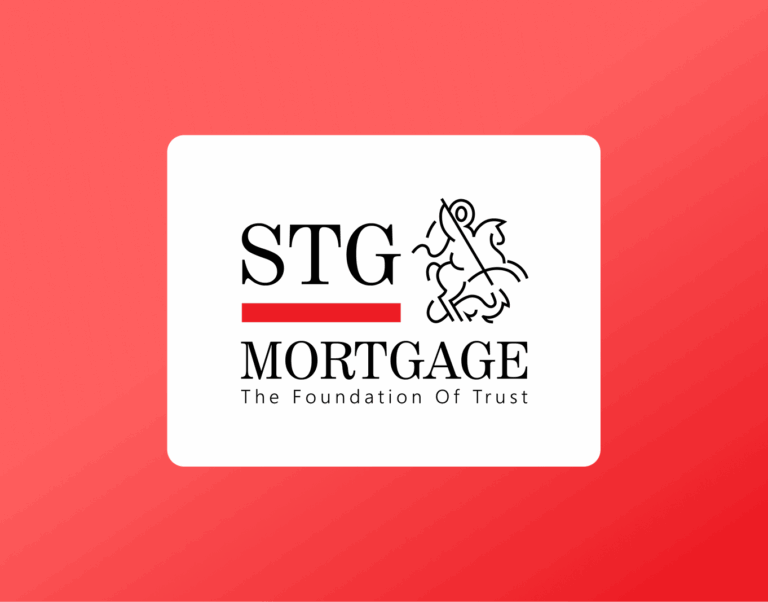What Is a CPA Letter and Why Do You Need One When Applying for a Mortgage?

When applying for a mortgage, especially if you’re self-employed or own a business, your lender may ask for a CPA letter. Don’t worry — this is a standard request, and it’s easier than it sounds.
In this article, we’ll walk you through:
- What a CPA letter is
- Why it’s needed
- What information should be included
- Who can write it
- And a sample letter you can share directly with your CPA
Let’s break it down.
📘 What Is a CPA Letter?
A CPA letter (also called an “Accountant Letter”) is a brief document written by a Certified Public Accountant (CPA) or licensed tax preparer to confirm your self-employment or business income.
In most cases, it’s not about your income amount — it’s about verifying that you’re actually self-employed and that your business is real and active.
🏦 Why Do Lenders Ask for It?
Mortgage lenders use CPA letters to:
- Confirm that a self-employed borrower has an active and legitimate business
- Establish the start date of self-employment
- Verify ownership and role within the business
- Reduce the risk of income fraud
This letter helps satisfy the underwriting requirements for conventional, jumbo, or other loan types that require extra documentation for self-employed borrowers.
You might be asked for this letter if:
- You’re self-employed or own 25% or more of a business
- Your tax returns don’t fully clarify your role or income
- You’re applying for a loan backed by Fannie Mae, Freddie Mac, or a jumbo/investor program
✅ Who Should Write It?
The letter must come from a licensed CPA, EA (Enrolled Agent), or tax preparer who has prepared your returns or knows your business history.
They should:
- Be actively licensed
- Have a professional relationship with you or your business
- Be able to confidently confirm the required facts
📌 Note for Borrowers: This is not something you can write yourself — it must come directly from a licensed third party.
📝 What Should Be Included in the CPA Letter?
Here’s the information lenders typically want to see in the CPA letter:
1. CPA’s letterhead (must include their business name, contact information, and license number if possible)
2. Borrower’s name and business name (if applicable)
3. Statement that the borrower is self-employed
4. Type of business and industry
5. Length of time the borrower has been self-employed
6. Confirmation that the business is currently active and operating
7. Optional: CPA’s relationship to the borrower (e.g., has prepared their taxes for X years)
8. CPA’s signature, printed name, and date
📄 Sample CPA Letter 1
(Template You Can Share with Your CPA)
Here’s a sample letter you can copy and give to your CPA. They should place it on their official letterhead.
[CPA’s Firm Letterhead]
[CPA’s Full Name]
[CPA’s License Number]
[CPA’s Address]
[Phone Number]
[Email Address]
[Date]
To Whom It May Concern:
I am writing to confirm that [Borrower’s (Your) Full Name] is self-employed as the [Your Title/Role] of [Business Name, if applicable]. I have prepared [his/her/their] tax returns and/or have personal knowledge of [his/her/their] business operations.
[Borrower’s (Your) Name] has been self-employed in the [type of business or industry, e.g., graphic design, consulting, construction, etc.] industry since approximately [Month, Year]. Based on my knowledge, this business is currently active and continues to operate as of the date of this letter.
Please feel free to contact me should you require any additional information. Sincerely,
[Signature]
[Printed Name]
Certified Public Accountant (CPA)
[License # (optional but recommended)]
Copy or download the template file by clicking this link.
📄 Sample CPA Letter 2
(Template You Can Share with Your CPA)
This version of the CPA letter is more detailed and may be used when the lender is requesting verification of both income and contracted revenue — especially helpful for freelancers or borrowers with irregular income. This template is especially useful when the lender needs a more granular breakdown of a borrower’s income and projected earnings, which can often apply to freelancers, consultants, and gig workers.
[CPA’s Company Letterhead]
[CPA Name] – Certified Public Accountant (CPA)
[CPA Phone Number]
[CPA Email Address]
[CPA Office Address]
[Date]
Subject: Verification of Income and Contracted Revenue for Rental Agreement or Mortgage Application
To Whom It May Concern,
I hope this letter finds you well. I am writing to provide verification of income and contracted revenue on behalf of [Borrower’s Full Name], who is applying for a rental agreement or mortgage with your company.
As a Certified Public Accountant (CPA), I have thoroughly reviewed [Borrower’s Name]’s financial information, including income sources and contracted revenue. The following information represents their financial standing as of the date of this letter:
1. Income Verification:
- [Borrower’s Name]’s Total 2023 Earned Income: $[Amount]
- Source(s) of Income: [Source(s) of Income]
2. Contracted Revenue:
- [Borrower’s Name]’s Total Contracted Revenue for the remainder of [Year]: $[Amount]
- Total [Year] Estimated Income (earned + contracted): $[Amount]
- Description of Contracted Revenue: [Source(s) of Income]
If you need additional information, I am available to answer any questions.
Sincerely,
[CPA Signature]
[Printed Name]
Certified Public Accountant (CPA)
[License Number if applicable]
Copy or download the template file by clicking this link.
💬 FAQ: Common Questions from Borrowers
Q: Does the CPA need to disclose my income?
No. In most cases, the letter is only used to verify self-employment status, not specific income figures.
Q: What if I don’t use a CPA?
If you use a tax preparer or accountant who’s not a licensed CPA or EA, your lender may or may not accept the letter. Ask your mortgage advisor first.
Q: Is this letter mandatory?
Only if your loan program or underwriter specifically asks for it — not all self-employed borrowers need one.
🧭 Final Thoughts
Getting a CPA letter is a simple but important step when you’re self-employed and applying for a mortgage. It’s one of the ways we help verify your income documentation to keep your loan on track.
If you’re unsure who should write it or how to get started:
- Reach out to your mortgage advisor (that’s us!)
- Share the sample letter with your CPA
- Let us know if they have any questions — we’re happy to assist them
As always, we’re here to make the process clear and stress-free. Whether you’re self-employed or a salaried employee, we’ll walk you through every document and every step — from pre-approval to closing day.




